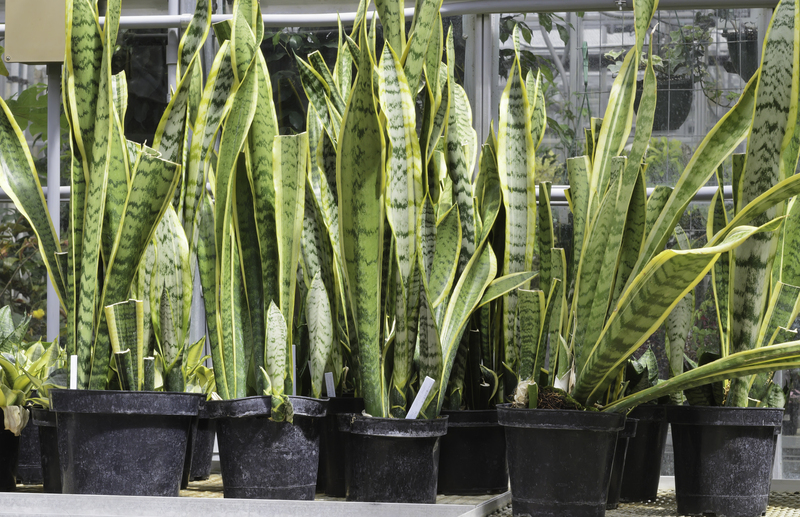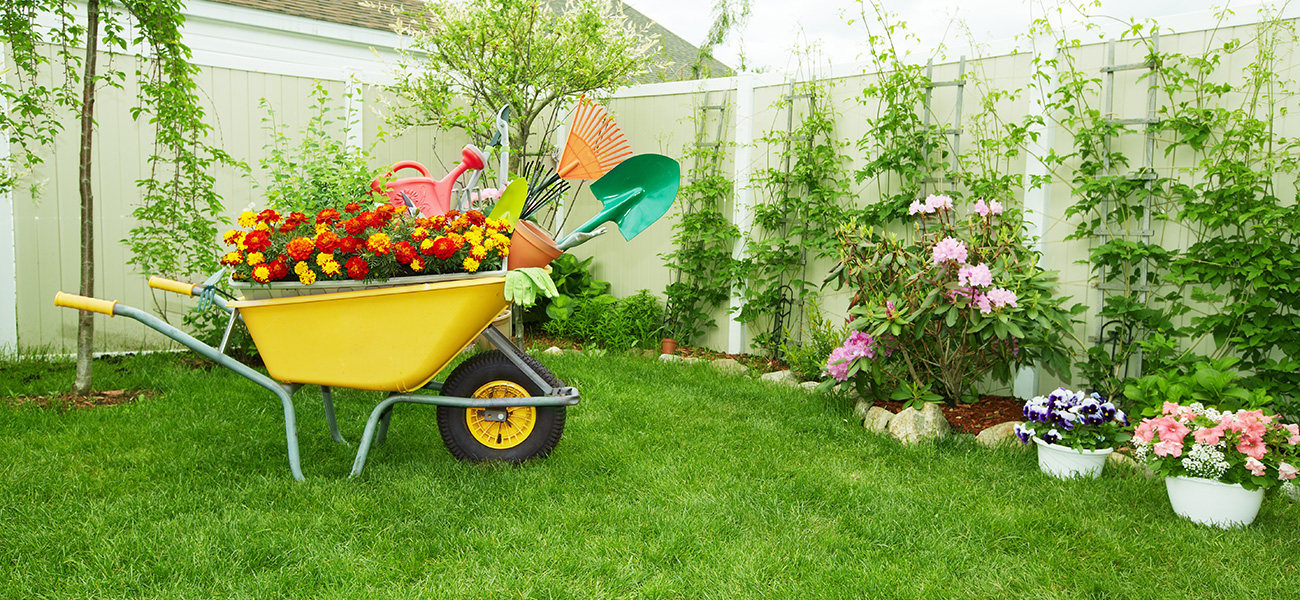9 Vital Gardening Tips Every Beginner Should Know
Posted on 07/06/2025
9 Vital Gardening Tips Every Beginner Should Know
Embarking on your gardening journey? Whether you're growing vegetables, flowers, or houseplants, starting a garden is an exciting and rewarding experience. While it may seem overwhelming at first, understanding the basic principles can set you on the path to gardening success. Our guide covers the nine essential gardening tips that every novice gardener should master. These vital gardening tips for beginners will help you build a lush and thriving garden that you'll cherish for years to come.
1. Assess Your Garden Space and Sunlight
Understanding your garden's environment is the foundation of every successful plot. Many beginner gardeners overlook the importance of garden location and sunlight. Before sowing a single seed:
- Observe sunlight patterns: Most vegetables and flowers require at least 6 hours of direct sunlight daily. Watch how the sun moves across your yard to identify the sunniest spots.
- Consider microclimates: Walls, trees, fences, and slopes can affect temperature and light. Some areas may be warmer, shadier, or more sheltered from wind.
- Test your soil: Examine the texture and composition. Knowing whether your soil is sandy, clay-based, or loamy helps you choose the right plants and soil amendments.
Pro tip: Use your phone's compass app or a physical compass to determine your garden's orientation. South-facing areas generally receive the most sunlight!

2. Start With Easy-to-Grow Plants
One of the best beginner gardening tips is to choose plants suited for your skill level and climate. Don't dive into demanding varieties right away. Instead, opt for hardy, resilient species that will boost your gardening confidence!
Excellent Choices for Beginner Gardeners
- Herbs: Basil, mint, chives, oregano, and parsley thrive quickly and can be grown in garden beds or containers.
- Vegetables: Radishes, lettuce, carrots, green beans, and tomatoes are perfect for novice gardeners.
- Flowers: Marigolds, pansies, zinnias, sunflowers, and nasturtiums add vivid color and grow with minimal fuss.
Remember: Check your local USDA hardiness zone or equivalent gardening zone to ensure your plants will thrive in your region.
3. Master the Art of Soil Preparation
A thriving garden starts with healthy soil. Most plant problems originate below the ground. Preparing and nourishing your soil is a crucial gardening tip for every beginner. Here's how to get started:
- Clear the area: Remove weeds, debris, and rocks from your garden bed.
- Loosen the soil: Use a garden fork or spade to turn over at least 6-12 inches of soil. This improves drainage and root penetration.
- Add organic matter: Mix in compost, well-rotted manure, or leaf mold to increase nutrients and improve soil structure.
- Test soil pH: Purchase a home test kit. Most plants prefer a neutral pH (6.0 to 7.0). Amend soil as needed based on results.
Tip: Compost enriches the soil, reduces the need for chemical fertilizers, and encourages healthy root growth.
4. Understand Proper Watering Techniques
Watering is about consistency and balance. Overwatering can drown roots, while underwatering leaves plants parched. Learn these essential watering tips for new gardeners:
- Water early in the day: This allows foliage to dry before nightfall, reducing the risk of fungal diseases.
- Target the roots: Focus water at the soil level, not on foliage. Use a watering can or soaker hose for best results.
- Check moisture before watering: Insert your finger about an inch deep. If it's dry, water your plants.
- Mulch to conserve moisture: A layer of organic mulch helps retain soil moisture and keeps roots cool.
Good watering habits ensure deep root development and robust growth--two pillars of a thriving beginner garden.
5. Invest in Quality Gardening Tools
Having the right equipment can make all the difference. As a novice, you don't need every gadget in the store--just a few essential gardening tools for beginners:
- Trowel: For digging, planting, and transplanting small plants.
- Pruners or shears: To trim, deadhead, and shape your plants.
- Gloves: Protect hands from thorns, dirt, and cuts.
- Watering can or hose: Choose one with a gentle spray head.
- Garden fork or spade: For turning soil and incorporating compost.
- Rake: For leveling soil and clearing debris.
Keep your tools clean and sharp to boost efficiency and reduce the risk of spreading disease.
6. Feed Your Plants with the Right Fertilizer
Fertilizers provide essential nutrients for plant health and productivity. Many new gardeners neglect regular feeding, but it's crucial for strong growth. Here's what every beginner gardener should know:
- Understand N-P-K ratios: These stand for Nitrogen (N), Phosphorus (P), and Potassium (K). Each nutrient serves a different purpose--leaf growth, root development, and overall vigor.
- Prioritize organic options: Compost, aged manure, fish emulsion, and seaweed extracts nourish the soil and promote sustainability.
- Follow label instructions: Using too much fertilizer can damage plants. Always measure and apply carefully.
By feeding your garden regularly, you'll encourage healthy, vibrant growth throughout the season.
7. Mulch for Moisture, Temperature, and Weed Control
Mulching is a secret weapon for new gardeners. Not only does it create a tidy appearance, but it also:
- Retains soil moisture, reducing the need for frequent watering
- Suppresses weeds, making your gardening journey more enjoyable
- Regulates soil temperature, protecting roots from temperature extremes
- Improves soil health as organic mulches decompose and enrich the earth
Apply a 2-3 inch layer of organic mulch--like straw, wood chips, shredded leaves, or compost--around your plants, taking care not to pile it against stems or trunks.
8. Learn to Identify Pests and Diseases
Some garden challenges are inevitable. The key is to catch and address problems early. Prevention is often simpler than cure. As you develop your beginner gardening skills, take time to:
- Inspect regularly: Look for holes or discoloration in leaves, sticky residue, or unusual growths.
- Encourage beneficial insects: Ladybugs, lacewings, and predatory wasps help control pests naturally.
- Practice good garden hygiene: Remove diseased plants and fallen debris to stop spread.
- Research organic solutions: Neem oil, insecticidal soap, and companion planting can help manage common pests without chemicals.
Getting to know your local plant pests and diseases is a crucial gardening tip for beginners that can safeguard your hard work.
9. Embrace Patience and Enjoy the Learning Process
Every seasoned gardener started as a beginner. Gardening is a journey of discovery and growth, not just for your plants but for you as well. Accept that there will be successes and failures. Here's how to stay motivated:
- Keep a garden journal: Track what you plant, when you plant it, and your observations. Over time, you'll see what works best in your unique space.
- Ask for help: Join local gardening groups, clubs, or online forums for advice and camaraderie.
- Celebrate small victories: A single blossom, a handful of tomatoes, or new seedlings--acknowledge every achievement!
- Keep exploring: Read gardening books, visit nurseries, and experiment with new plants each season.
Patience is the true gardener's virtue. With each mistake, you're gaining valuable knowledge for future success.

Additional Gardening Advice for Beginners
Here are a few more bonus tips for starting a garden:
- Start small: Focus on a modest area or a set number of plants as you build your skills.
- Label everything: Use garden markers to remember what you planted and where.
- Stay consistent: Regular weeding, watering, and observation is more effective than sporadic, intense effort.
- Protect against wildlife: Fencing, netting, or natural repellents can deter animals from eating your hard work.
Conclusion: Your Flourishing Beginner Garden Awaits!
Starting a garden is one of the most rewarding hobbies you can pursue. By following these 9 vital gardening tips for beginners, you'll establish a solid foundation for success. Remember to assess your space, start simple, prepare your soil, water wisely, equip yourself with the right tools, feed and mulch your plants, watch for pests, and embrace the process with patience and curiosity.
With time, observation, and hands-on experience, your beginner garden will thrive--and so will your love for gardening! Happy planting!
Latest Posts
Designing a Magical and Safe Garden Space for Your Kids
Transform Your Garden With These Inspiring Seating Area Ideas
Transforming a Neglected Garden: Your Starting Point



